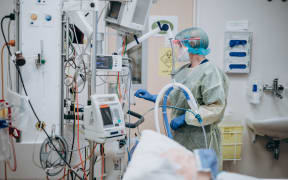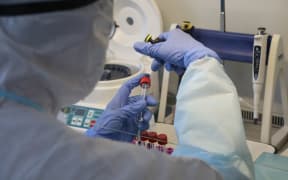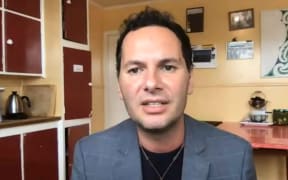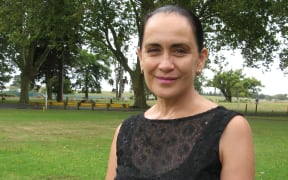Māori health services are concerned fewer patients suffering chronic health conditions are getting in contact with their GPs.

File photo. Photo: 123RF
Modelling has found that Māori could be twice at risk of dying from Covid-19 if the virus spreads due to a higher prevalence of chronic health conditions like diabetes, heart disease, cancer and asthma.
Raukura Hauora o Tainui runs four low-cost GP clinics across the Waikato region, and its clinical services manager Sarina Wawatai, said they have seen a decrease in patients getting in contact with them, as call volumes have dropped.
"We've had about 70 percent our population engaging really well with phone consultations, [but] we still have about 30 percent of our population which we're having to try and chase."
*See all RNZ coverage of Covid-19
"[We give] them encouragement that it's okay, that we can arrange for them to still come down and see our practices and we do it so there's only one or two people in the practice at the time and we make sure its a well-guided process as well [and] that helps."
"But the ramifications of having everybody stay home during the lockdown has really taken an impact on people's confidence in accessing services, so it's been our primary goal especially the last couple of weeks to say, actually you can come back in - even for our mums and vaccinating their babies that's something of a fear as well, and we're just trying to encourage them to come back in."
Wawatai said they've also been paying for and delivering prescriptions to some of their patients, averaging about 40 to 50 a day deliveries a day, to make sure they have their medications.
The chief executive of Ngāti Hine health trust - the largest Māori health provider in Northland - Geoff Milner said they have also seen a concerning drop-off of at-risk patients contacting their GPs.
He said virtual and phone consultations have not been a good substitute for GP visits.
"They're a poor engagement tool, telephone triaging [and] video consultations are still relativity new in most general practitioners so this kaupapa - being forced to then switch engagement with our Māori whānau by that means - saw people just not engaging."
"So it's not the solution, especially for our whānau Māori."
Both Milner and Wawatai said that conflicting messaging in the early weeks of the lockdown, over whether patients could visit their GP in person or not, was also behind a drop-off in patient contact.
Peter Paul, 34, from Gisborne is in the high risk category.
After suffering from rheumatic fever from the age of four, he had to have two of his aortic valves in his heart replaced in 2018.
His partner is a manager at supermarket, so he must come through a back door, strip all his clothes off, shower and then sanitise where he has walked before coming in contact with Peter or their children.
"My mamae is right down the middle of my chest so because they [the children] see my scare, they can put together that cleaning these surfaces and cleaning themselves and bumping up the personal hygiene will keep uncle's mamae safe," Paul said.
He said there hasn't been enough information for those who are in the high-risk category.
"There could have been a lot more information for those who are in the high risk categories, [such as] how we can self-guard ourselves in our own homes, because I have children - if my children were exposed to anything could I catch it, or how can I self-guard myself as a high-risk person if I absolutely needed to go out to the supermarket."
"I know for myself what I can do but for our pakeke - our elders - even our younger ones ... that may not have this type of information or this self-knowledge to know if they can do that."
However, Paul said he has been happy with the care he's received from his GP throughout the lockdown.
He said he has only needed to go to the pharmacy to pick up a prescription once, but otherwise his GP ensured he had all the three medications he takes - Metformin, insulin, Walfarin and Accuretic - before the lockdown.
The message from the medical director of the Heart Foundation, Gerry Devlin, for those with chronic heart conditions is clear.
"Don't change what you do - if you have concerns about your health please contact your GP."
"If something is going wrong, you're getting chest pain that's not going away, you dial 111, do the normal thing."
Read more about the Covid-19 coronavirus:
- See all RNZ Covid-19 news
- Your Covid-19 questions answered - from health and employment to managing anxiety
- A timeline: How the coronavirus started, spread and stalled life in New Zealand
- Covid-19 symptoms: What they are and how they make you feel
- Touching your Face: Why do we do it and how to stop
- Scientific hand-washing advice to avoid infection
- Coronavirus: A glossary of terms
- The Coronavirus Podcast







